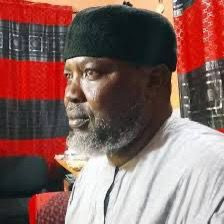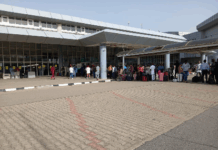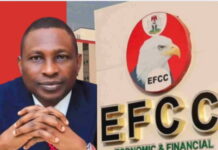Debt and Despair: Why Nigeria must rethink its borrowing culture, by Dr Tukur Madu Yemi
As a university academic deeply invested in Nigeria’s socio-economic development, I have watched with increasing concern as the country’s debt profile expands at an unsustainable pace. From the lecture halls where I teach mathematics, education, research methods and statistics, to the streets of Gombe, Maiduguri, Kano, and Kaduna, the reality is stark and distressing: Nigeria is on a dangerous fiscal trajectory, borrowing itself deeper into poverty and underdevelopment.
Just recently, the National Assembly approved an additional $21 billion foreign loan for the Federal Government. This new debt, when added to existing obligations, is expected to push Nigeria’s total public debt beyond ₦200 trillion by the end of 2025. In theory, such vast borrowing should translate into robust infrastructure, economic growth, and improved public services. In practice, the evidence points in the opposite direction.
Instead of prosperity, Nigerians are facing worsening hardship, broken infrastructure, and unrelenting insecurity. In Zamfara, entire communities are under siege by bandits. In Kebbi, food insecurity looms as farmers flee unsafe farmlands. In Benue and Kaduna, fear of attacks defines daily life. Meanwhile, in Lagos and Kano, inflation has rendered food, fuel, and even public transportation inaccessible to the average household. This is not merely a fiscal issue it is a national emergency.
A Borrowing Culture That Burdens Without Building
Under the current administration, Nigeria’s debt accumulation has reached unprecedented levels, averaging ₦49.8 trillion annually, a tenfold increase over the Buhari administration’s annual borrowing average. The national debt has ballooned from ₦12.6 trillion in 2015 to over ₦149 trillion by mid-2025. If current trends persist, the country’s external debt alone could exceed $67 billion before year-end.
Regrettably, the outcomes of these loans remain elusive. The $1.5 billion Port Harcourt refinery rehabilitation has failed to materialise into a functioning facility. The $750 million World Bank loan for subnational governance reforms lacks measurable results. The Abuja–Kaduna railway, funded by Chinese credit, now stands as a symbol of infrastructural insecurity and declining public trust.
READ ALSO: Parenting in a Changing World: A call for responsibility and discipline, by Dr. Tukur Madu Yemi
Nigerians Are Paying the Price
This borrowing spree is not without consequences. In 2024 alone, Nigeria spent ₦10.6 trillion more than its entire capital budget on debt servicing. Alarmingly, over 60% of national revenue is now dedicated to debt repayment, leaving paltry resources for health, education, agriculture, and security.
According to the National Bureau of Statistics, 133 million Nigerians live in multidimensional poverty. The removal of fuel subsidies, implemented under World Bank loan conditions, has led to soaring costs of transportation, food, and basic commodities. Meanwhile, the federal government has imposed additional taxes on telecommunications, beverages, digital services, and banking transactions further squeezing already burdened citizens.
As a scholar of education and national development, I find it particularly disheartening that public universities remain underfunded, many lecturers are owed months of salary, and critical research activities are suspended while billions are borrowed and often mismanaged or unaccounted for.
An Economy Under Strain, a Nation in Decline
The economic climate is equally grim for businesses. With interest rates hovering around 28%, access to credit has become nearly impossible for small and medium enterprises the very engine of job creation. Youth unemployment is at historic highs. The country’s brightest minds are leaving in search of better opportunities abroad. Meanwhile, investor confidence continues to erode. Credit rating agencies such as Fitch and Moody’s have downgraded Nigeria’s sovereign ratings, while foreign direct investment dropped by over 30% in 2024 alone.
Charting a New Path: Toward Fiscal Responsibility and National Renewal
Borrowing in itself is not inherently bad. When used judiciously and transparently, it can serve as a catalyst for development. However, Nigeria’s current borrowing pattern, marked by opacity, weak oversight, and poor project delivery, is economically reckless and morally indefensible. A comprehensive reset is urgently needed.
I propose the following:
1. Immediate suspension of all non-essential borrowing, particularly for recurrent expenditure and politically motivated projects.
2. Full public disclosure of all loan agreements entered into from 2015 to 2025, including repayment terms, project timelines, and beneficiaries.
3. Independent audit and publication of outcomes of all debt-funded projects, with consequences for mismanagement.
4. Stronger legislative oversight, including the creation of a Debt Transparency and Accountability Committee with powers to hold public hearings.
5. Diversification of national revenue sources, especially through investment in agriculture, the digital economy, local manufacturing, and non-oil exports.
6. Progressive tax reform to reduce pressure on low-income earners while improving compliance among high-net-worth individuals and corporate entities.
A Moral and Humanitarian Imperative
This crisis is no longer about macroeconomic indicators it is about survival. Nigerians are dying in Zamfara, displaced in Niger, impoverished in Benue, and crying out across the country. Yet loans secured in their names vanish into opaque bureaucracies or projects with no traceable benefit.
If President Tinubu hopes to leave behind a meaningful legacy, it must not be as the leader who mortgaged Nigeria’s future, but as the one who rescued it from a debt-fueled collapse. The time for action is now. Governance must reflect the aspirations of the governed. Economic planning must mirror the lived realities of the people not just budgetary figures or growth projections.
As a university lecturer who interacts daily with Nigeria’s youth, our future leaders, I speak not from theoretical detachment but from firsthand experience. I see bright students dropping out for lack of fees, families unable to access medical care, and communities crumbling under the weight of neglect.
Nigeria must awaken before debt becomes the tombstone of its development dreams.
Dr Tukur Madu Yemi writes from the
Federal University of Kashere, Gombe.
Email: alhajitukur68@gmail.com
Follow the Neptune Prime channel on WhatsApp:
Do you have breaking news, interview request, opinion, suggestion, or want your event covered? Email us at neptuneprime2233@gmail.com





